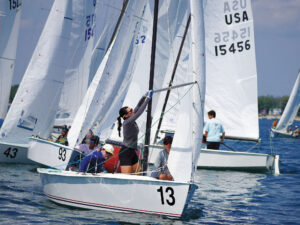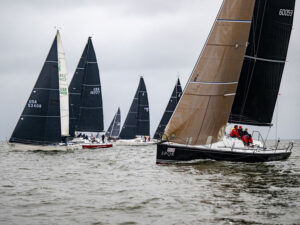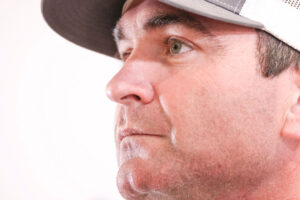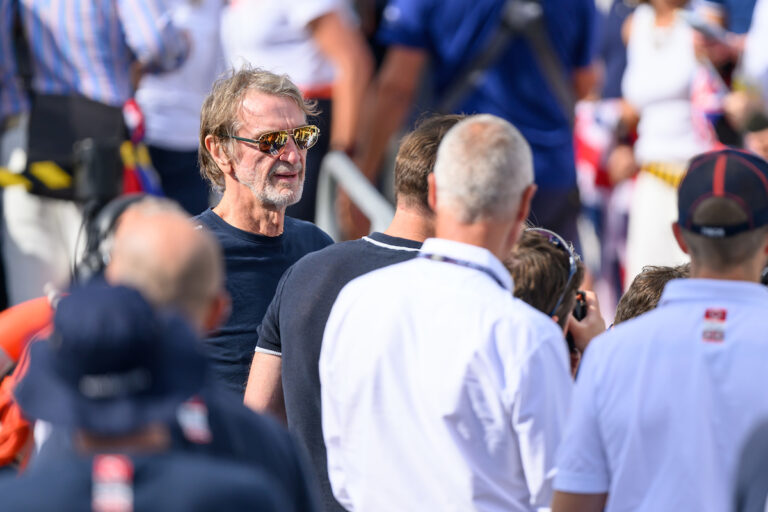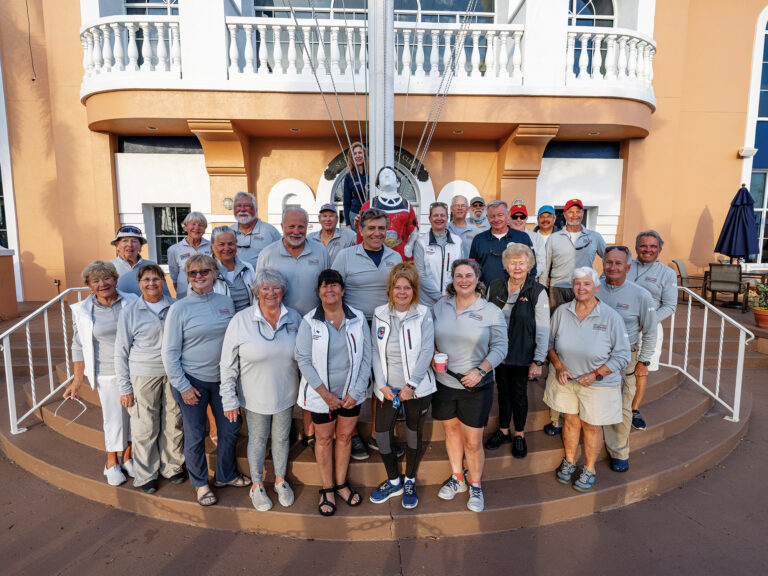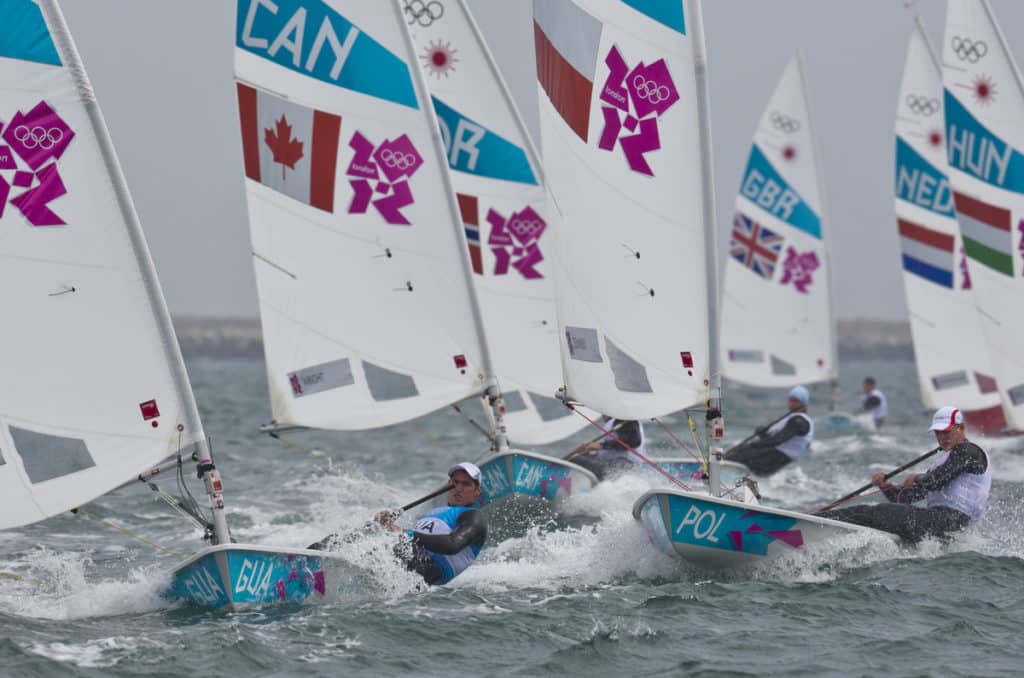
120802_Aguero_Forster
In a little over four years, Juan Maegli Aguero, of Guatemala, has transformed himself from a Hobie Cat sailor who didn’t know how to sail a Laser to a medal hopeful at the 2012 Olympics. With six races down in the Laser class, the 24-year-old second-time Olympian is in fifth overall in the 49-boat class, 1 point out of fourth and 17 out of bronze.
Part of that development has come on the U.S. collegiate and scholastic sailing circuits, which are often criticised for their inability to properly prepare sailors for the Olympic circuit.
Of course, there are other key parts to this puzzle. For one, Maegli Aguero has Olympic singlehanded sailing in his blood. His father, Juan Maegli-Novella sailed in three Olympics (1976 in the 470, and 1980 and 1984 in the Finn), though Maegli-Novella was never able to break into the top half of the standings. The younger Maegli Aguero has also spent the past two years on hiatus from the College of Charleston, where he won the 2010 ICSA Singlehanded Championship.
Four years ago, at the Qingdao Olympics, you were 33rd. Now you’re in the top five. That’s quite a big improvement. What’s the secret of your rapid rise?
Well, four years ago I had only been in the Laser class for a couple months. I was a catamaran sailor before that, so I was just really happy to be able to qualify. I was the last boat to qualify, and just used the whole Games as an experience to learn as much as I could. And I’ve been working really hard from then on just to get where I am right now.
How did you end up attending an American secondary school, Portsmouth Abbey, and then also College of Charleston?
My dad went to Portsmouth Abbey, so I just kind of followed his footsteps there. And then ended up in Charleston because I didn’t really like the cold up in [Rhode Island], so I went down South.
And so where do you stand at Charleston right now?
Well I haven’t gone to school in two years, actually, I took some time off for training, and I think I start classes the 18th, so I have 10 days after this is done and then I have to go back to school.
And right back into the college circuit?
I think I might take this semester off, just because I’ve been sailing nonstop for the past five years. I may take one semester off. But I want to sail, but not do so much. I really want to do the team racing in the spring.
So tell me, if you look at your results, it’s been—obviously you mentioned you just got in a Laser—but even over the last couple years it’s been a significant jump. You were what, fourth at the Worlds this year, is that right, after being 88th in 2009 and 43rd in 2010?
Yes, yes.
So what have you done over the last 12 months, the last 18 months, that’s really helped elevate your game?
I don’t know what it’s been. I think first my biggest weakness was the strong air; I didn’t really have the fitness to do well, so that was the biggest improvement I guess.
And how did—what did you do? It’s easy to say I want to get bigger for heavy wind, but it’s a lot harder to actually do that.
It’s not just bigger; I mean just more fit. Being able to hike hard, hold that weight out there.
Any specific techniques or training you’ve done to improve your hiking abilities?
No, I just think I have a really good fitness trainer. I just do whatever he tells me to do.
Many people criticize the U.S. collegiate and high school program in terms of Olympic sailing. They say it holds back sailors with Olympic potential because it focuses so much on starts and short-course tactics and not a lot on boatspeed and rig tuning. You’re a product of that system to some extent. Would you say that true or not true?
There are definitely good things and bad things [with the U.S. system]. I do really well whenever it’s shifty conditions, like I did at Worlds. I finished second at Europeans as well, with kind of shifty conditions like you normally have in college venues. But, earlier this year I started working with a new coach and he was criticizing me a lot for [being] too much of a college sailor at times. So it has its good things and bad things. You get really good at the small things. You know, a lot of tacking, a lot of starting, mark roundings, and all that stuff is really important at the end of the day.
If you had a college sailor, let’s say someone who’s a freshman or a sophomore, who’s showing some talent in a Laser or a Radial, what would you recommend that they do to get the most out of college sailing but also make sure to set themselves up well for when they graduate from college and maybe want to pursue an international career?
Well, I did the whole college sailing thing, but at the same time I was working really hard on trying to get fit for the Lasers, even though I wasn’t sailing [a Laser] that much. I improved a lot without really sailing the boat, just because of [my improved fitness]. And then I was getting better at all of the small things because of all the practices we ran and stuff like that.
**
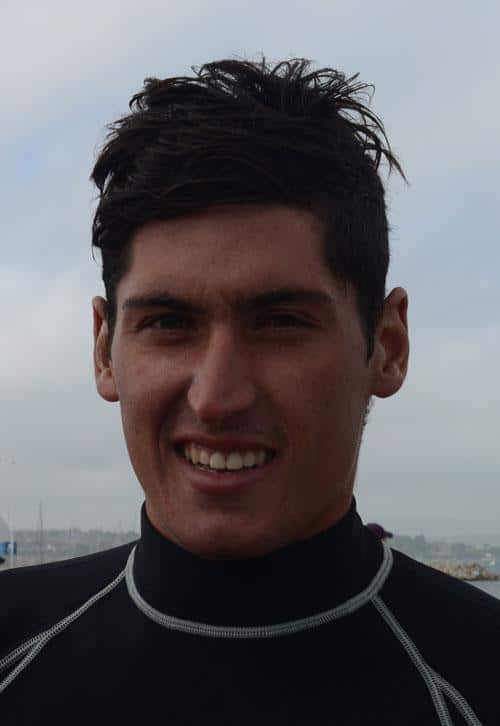
Guatemala is obviously a smaller country; I imagine it’s a pretty small Olympic contingent. How many people on your Olympic team?**
19.
19. What’s it like? What kind of reception do you get back home? Do people know you’re here competing?
Yes. It’s been really good this time around, because we’ve all been doing pretty well. We’ve never won an Olympic medal, but there are a few possibilities now.
The country has never won an Olympic medal?
No, no, no. So people are really excited about the good results we’ve been getting. And I had the honor to be the flag bearer at the opening ceremonies.
That’s outstanding. What was that like?
It was awesome. It was a really good experience.
Was that something your dad had done before you?
No, no, no.
So he must have been pretty proud himself, I bet.
Yeah, he was.
It looks like maybe some lighter breeze toward the weekend? Or you’re not sure?
I haven’t seen the forecast, but yeah hopefully.
If you could dial it up, what would you look for?
Lighter winds for sure. I can do well in both, but I think I’ve been having really good results in the lighter stuff, so that can hopefully mix things around.** **

